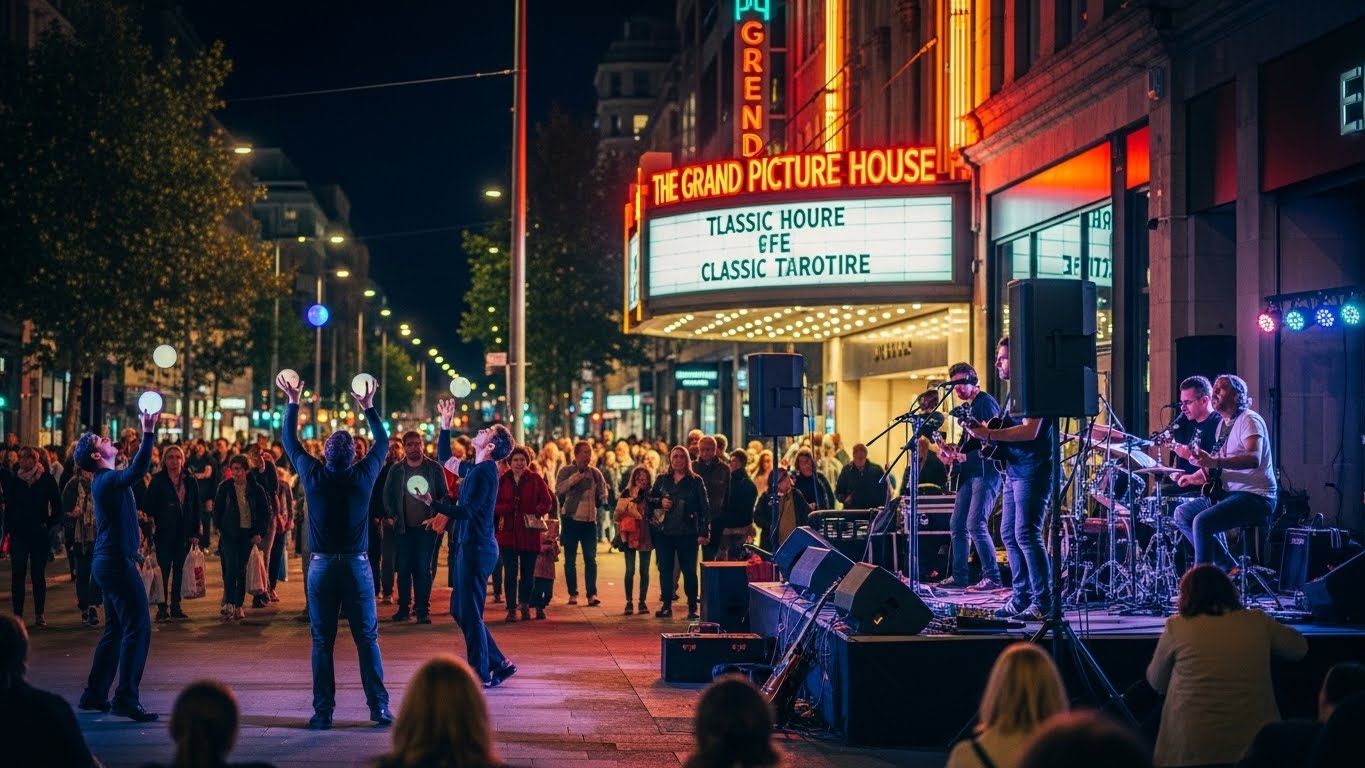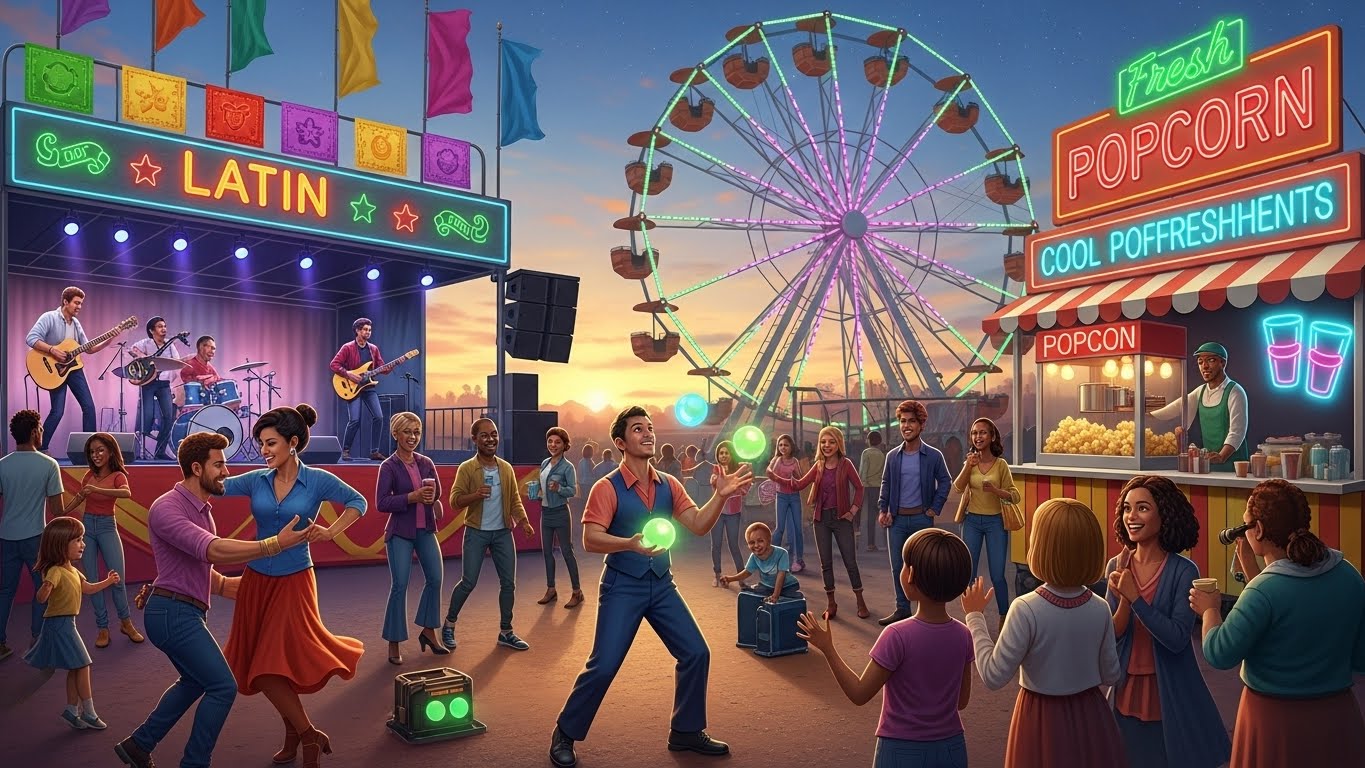Video games have evolved far beyond pixelated graphics and simple mechanics. Today, they are immersive storytelling experiences, blending narrative, visuals, and music into a cohesive art form. While movies often get the spotlight for their iconic soundtracks, the gaming world has been quietly producing scores that rival, and sometimes surpass, Hollywood compositions in emotional depth, complexity, and artistry. In this post, we explore gaming soundtracks that deserve an Oscar, examining why they are exceptional, the composers behind them, and the impact they have on players.
The Importance of Music in Gaming
Music in gaming is not merely background noise; it is a critical storytelling tool. A game’s soundtrack can set the mood, define a character, enhance immersion, and even guide player emotions. Unlike films, video game music often has to adapt dynamically to player choices, creating a layered and interactive auditory experience.
In titles like The Legend of Zelda: Breath of the Wild, music shifts subtly as the player explores different regions, enhancing the feeling of discovery. In horror games like Silent Hill, eerie soundscapes intensify suspense and fear. The role of music in games is multifaceted, combining traditional composition techniques with interactivity, making these soundtracks deserving of recognition at the highest levels.
The Evolution of Gaming Music
The history of gaming music reflects both technological progress and artistic ambition. Early games like Super Mario Bros. or The Legend of Zelda featured catchy, simple melodies due to hardware limitations. Despite this, composers like Koji Kondo created timeless themes that remain iconic decades later.
As technology advanced, soundtracks grew richer and more cinematic. Orchestral arrangements, live recordings, and complex synthesizers became standard in AAA games. Titles like Final Fantasy VII and The Elder Scrolls V: Skyrim demonstrated that video game music could rival film scores in emotional depth and compositional complexity. This evolution has set the stage for gaming soundtracks to be considered for accolades like the Oscars.
Iconic Gaming Soundtracks That Deserve Recognition
1. Final Fantasy Series
The Final Fantasy series, particularly under the direction of composer Nobuo Uematsu, has defined what a gaming soundtrack can achieve. Uematsu’s work blends orchestral grandeur with emotional resonance, creating pieces that players remember long after finishing the game.
Final Fantasy VII’s Aerith’s Theme is a perfect example of music amplifying narrative impact. The theme’s haunting beauty elevates a pivotal moment, leaving a lasting emotional imprint. The series consistently demonstrates the power of music to tell stories, making it a strong contender for cinematic recognition.
2. The Legend of Zelda Series
Koji Kondo’s compositions for The Legend of Zelda series are legendary. The main theme is instantly recognizable, but it is the nuanced, atmospheric pieces that make the games immersive. Tracks like Gerudo Valley or Zelda’s Lullaby evoke a sense of adventure, nostalgia, and wonder, blending seamlessly with gameplay.
The dynamic use of music in modern Zelda titles, where the score adapts to player exploration, showcases a level of sophistication that rivals film scores. The music not only complements the story but actively shapes the player’s experience, a hallmark of truly Oscar-worthy composition.
3. Halo Series
The Halo series, composed primarily by Martin O’Donnell and Michael Salvatori, brought orchestral and choral grandeur to first-person shooters. The main theme, with its Gregorian chant-like motifs and powerful orchestration, instantly became iconic.
Beyond the main theme, the soundtracks enhance gameplay tension and emotional stakes. The balance between haunting melodies and driving combat music demonstrates a deep understanding of how music interacts with interactivity, further cementing its eligibility for prestigious recognition.
4. The Witcher 3: Wild Hunt
Marcin Przybyłowicz and his team delivered a score for The Witcher 3 that blends Slavic folk music, orchestration, and ambient soundscapes to create a living, breathing world. Tracks like Kaer Morhen or Silver for Monsters transport players into Geralt’s world, merging narrative and gameplay seamlessly.
The music is not merely an accompaniment; it acts as a cultural and emotional guide, reflecting the world’s lore and history. The cinematic quality of the soundtrack makes it a prime candidate for awards traditionally reserved for film.
5. Red Dead Redemption 2
Woody Jackson’s score for Red Dead Redemption 2 elevates the game’s storytelling with rich Americana and emotionally resonant themes. The soundtrack adapts to narrative beats, creating an experience akin to a cinematic western.
From sweeping orchestral pieces to intimate piano solos, the music conveys a sense of place, time, and emotion that rivals the best film scores. The ability to immerse players in a historical and emotional context through music alone demonstrates why this soundtrack deserves Oscar consideration.
6. Journey
Austin Wintory’s Journey soundtrack is a masterclass in interactive music composition. The game’s music evolves in real-time with player actions, creating a deeply personal experience. Wintory was the first composer to receive a Grammy nomination for a video game score, signaling industry recognition of gaming music as legitimate art.
The emotional range of Journey’s music, from quiet, contemplative moments to uplifting crescendos, mirrors the narrative arc without words, showcasing the power of music to communicate story purely through sound.
7. NieR: Automata
NieR: Automata, composed by Keiichi Okabe, blends haunting vocals, electronic elements, and orchestral textures to create an unforgettable auditory experience. Tracks like Weight of the World deliver emotional resonance that parallels the game’s philosophical and existential narrative.
The soundtrack’s ability to evoke profound feelings of melancholy, hope, and reflection demonstrates the artistic depth achievable in gaming music, rivaling any cinematic score.
8. God of War Series
Bear McCreary’s work on the God of War series merges orchestral power with Nordic influences, creating an epic and intimate musical experience. The soundtrack supports both the intense combat sequences and the emotional father-son narrative, achieving a balance rarely seen in either film or game music.
Tracks like Memories of Mother convey subtle, layered emotion while maintaining the grandeur expected in epic storytelling. The sophistication of this soundtrack exemplifies why gaming music deserves critical acclaim.
Why Gaming Soundtracks Are Often Overlooked
Despite their artistry, gaming soundtracks are frequently overlooked by major awards. One reason is historical bias: video games were long considered a niche or juvenile medium, unworthy of comparison to cinema. Additionally, the interactive nature of gaming music complicates assessment by traditional judging criteria, as music changes dynamically based on player actions.
However, as games have matured into legitimate storytelling vehicles, this perception is changing. Recognition from institutions like the Grammy Awards and increased scholarly attention underscores the growing acknowledgment of video game music as a serious art form deserving of accolades.
The Composers Behind the Masterpieces
Behind every iconic gaming soundtrack is a visionary composer. Nobuo Uematsu, Koji Kondo, Austin Wintory, Marcin Przybyłowicz, Keiichi Okabe, and Bear McCreary are just a few names that have elevated gaming music to cinematic levels. These composers bring a deep understanding of melody, orchestration, and emotional storytelling.
Their work often involves collaboration with game designers to ensure music adapts seamlessly to gameplay, creating interactive experiences that go beyond traditional linear compositions. Recognizing these composers is essential to acknowledging the artistry and complexity involved in crafting Oscar-worthy soundtracks.
The Emotional Power of Gaming Music
One of the defining qualities of Oscar-worthy soundtracks is their emotional impact. Gaming music achieves this uniquely through interactivity. Players form personal connections with the music because it accompanies their choices, actions, and achievements. A battle theme is more thrilling when it accompanies your own strategic victory, and a melancholic melody is more poignant when experienced after completing a challenging quest.
Games like The Last of Us exemplify this synergy, with Gustavo Santaolalla’s haunting compositions enhancing the narrative’s emotional resonance. The music’s ability to evoke deep emotional responses places gaming soundtracks on par with the best in cinema.
The Future of Gaming Soundtracks
As gaming technology advances, the potential for music in video games continues to expand. Adaptive soundtracks, AI-assisted composition, and high-fidelity orchestration are pushing boundaries. The line between film and gaming music is blurring, creating opportunities for cross-media recognition.
Future gaming soundtracks may include fully interactive orchestral performances, personalized scores based on player behavior, and collaborations with top-tier composers traditionally associated with film. This evolution suggests that video games are not only a legitimate artistic medium but also a proving ground for innovative musical storytelling deserving of the highest accolades.
Conclusion
Gaming soundtracks have come a long way, evolving from simple beeps and loops to complex, emotionally resonant compositions rivaling Hollywood cinema. From Final Fantasy to Red Dead Redemption 2, Journey, and NieR: Automata, these soundtracks demonstrate the power of music to tell stories, evoke emotion, and immerse audiences in worlds both fantastical and realistic.
The artistry, technical skill, and emotional depth present in these scores make a compelling case for recognition on the level of the Oscars. As the medium of gaming continues to grow and mature, it is only a matter of time before the world fully acknowledges that video game music is not just an accompaniment but a profound, cinematic art form.
Gaming soundtracks are more than just background music; they are storytelling masterpieces, deserving of accolades, critical acclaim, and, ultimately, the recognition they have long earned but not yet fully received.



